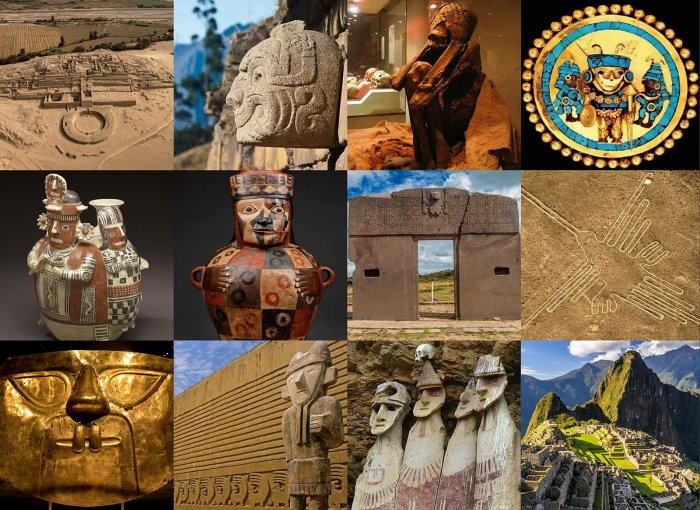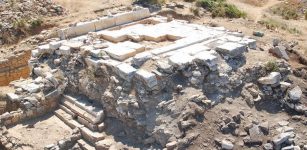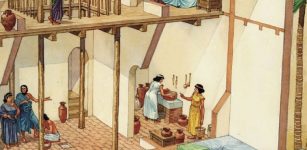Was Organized Society A Disruptive Or Calming Force In Ancient Andes Populations?
Conny Waters - AncientPages.com - A recent collaborative study involving archaeological groups from the Andes region of South America compellingly demonstrates that being part of a centrally organized state society is just one piece of the puzzle.
A compositioin of some civilizations that settled in the Andes. Image credit: FUEJXJDK - CC BY-SA 4.0
"Our findings suggest that being in a 'civilization' may reduce violence, but only for women, and only slightly then," said Thomas J. Snyder, a doctoral candidate in the Evolutionary Wing of the University of California, Davis, Anthropology Department and lead author of the study.
"The effect for women is most pronounced for lethal violence, which can be more plausibly linked to warfare than nonlethal violence."
Researchers conducted a study to examine the type and frequency of violence experienced by adults in the pre-Hispanic Andean region. This investigation focused on both large, centrally organized states, often referred to as "civilizations," and more politically autonomous communities.
The study analyzed existing data from 8,607 adults over a span of 3,000 years, drawing from 169 published articles that covered 155 sites located in Peru, Ecuador, Chile, and Bolivia.
Researchers have discovered compelling evidence that in autonomous communities, the likelihood of potentially lethal violent encounters is equal for both men and women. However, in state-governed areas, while these odds remain steady for males, they significantly decrease for females. This finding highlights a crucial difference that underscores the importance of examining governance structures to enhance safety and reduce violence against women.
Although violence can manifest subtly, such as through unequal access to essential resources, this study concentrated on direct, intentional interpersonal violence. This type of violence can occur in wars or battles and even within households.
It's crucial to understand that women are not necessarily protected from wartime violence; they may be taken prisoner or, in some instances, engage defensively within smaller communities. The researchers emphasize the importance of recognizing these realities to address and mitigate the impact of such violence effectively.
This study holds significant implications for future scholars as they delve into the complex interplay of violence, gender, and sociopolitical change. As Snyder pointed out, its findings provide a crucial framework that can guide and enrich scholarly engagement with these critical concepts.
"An individual's sex was as important or more important than the kind of society they inhabited in affecting the risk of trauma," he said. "Gender, rather than just sociopolitical organization, has a critically important impact on the experience of interpersonal conflict."
Written by Conny Waters - AncientPages.com Staff Writer





















